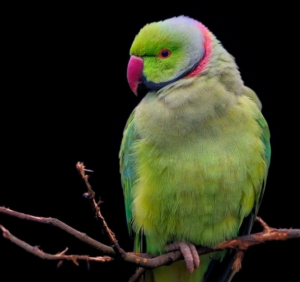GENETICS is pleased to announce three new editors: Jonathan Flint, Michael Gore, and Aurélien Tellier.
GENETICS
Jonathan Flint
David Geffen School of Medicine, UCLA

Jonathan Flint is a British behavior geneticist and professor in residence in the Department of Psychiatry and Biobehavioral Sciences at the David Geffen School of Medicine at UCLA. In 2015, he left his post as director of the Psychiatric Genetics Group at the University of Oxford’s Wellcome Trust Centre for Human Genetics to join UCLA, where he became one of four directors of UCLA’s Depression Grand Challenge. The Depression Grand Challenge aims to find the causes of depression and use that information to develop novel, effective therapies.
Jonathan Flint’s research focuses on understanding the genetic basis of behavior. He uses large human cohorts for identifying the genetic basis of depression and rodent studies to explore the genetic architecture of behavior. He pioneered the use of multi-parental lines for mapping complex traits, and has projects to provide catalogues of sequence variants in mice and rat inbred strains.
Michael Gore
Cornell University

Michael Gore is the chair of the plant breeding and genetics section, professor of molecular breeding and genetics for nutritional quality, Liberty Hyde Bailey professor, and international professor of plant breeding and genetics at Cornell University. His research combines quantitative genetics, genomics, analytical chemistry, and remote sensing to elucidate the genetic basis of complex trait variation in various crops. His career accomplishments in plant breeding and genetics earned him the National Association of Plant Breeders Early Career Scientist Award in 2012, the American Society of Plant Biologists Early Career Award in 2013, and the Maize Genetics Executive Committee Early Career Excellence in Maize Genetics Award in 2016.
Aurélien Tellier
Technical University of Munich

Aurélien Tellier studied in France. He joined James Brown’s lab at the John Innes Center (UK) for his PhD where he worked on theory of host-parasite coevolution. As a post-doc he joined Wolfgang Stephan’s lab at LMU Munich (Germany), where he learned theoretical population genetics and worked on adaptation of wild tomato species (Solanum sp.). He now assumes the position of associate professor of population genetics at the Technical University of Munich. Research in the Tellier lab is focused on population genetics/genomics theory bridging evolutionary and ecological processes and time scales. The primary focus of his research is the study of plant-parasite coevolution and long-term seed dormancy in the soil with specific application to wild tomato species.













